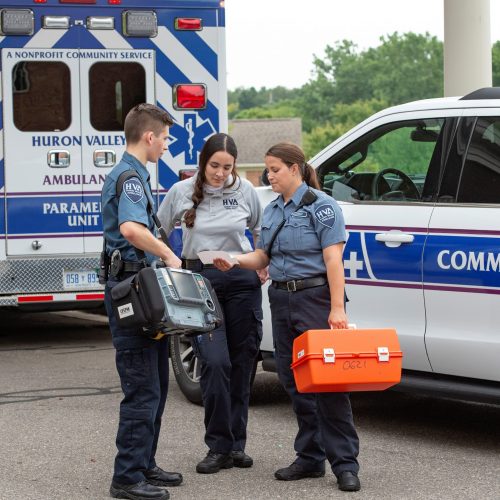Enhancing the fiscal sustainability of community paramedicine – Phase I
As health care in the U.S. shifts to a value-based focus, providers and payers are looking for ways to improve care delivery and reduce costs–specifically around unnecessary acute care utilization. Huron Valley Ambulance’s (HVA) Community Paramedicine (CP) program aims to deliver the correct level of care to patients based on medical and social needs. The program has been successful at reducing costly transports for low acuity 911 calls by providing comprehensive care in the patient’s home. From 2016 – 2018, for example, 53 percent of HVA’s CP patients were treated in place compared to 1.6 percent of patients treated by non-CP paramedics, resulting in an estimated savings of $2.3 million in transport and ED costs. However, savings from CP services accrue across multiple stakeholders including payers, health systems, and patients. HVA has had some success obtaining reimbursements for CP services but there is more work to do to cover the full cost of providing CP care.
To help HVA’s CP program make progress toward financial sustainability, CHRT will begin by framing the problem during a three-month planning period–Phase I. The goal: A more contextual understanding of community paramedicine and the previous work of HVA’s CP program, including through the Michigan Health Endowment Fund’s “Whatever It Takes” grant. We will examine existing HVA data to better understand the CP and general EMS patient populations, as well as service delivery costs. This will allow the CHRT team to determine which additional data is needed. We will also use this phase to explore reimbursement rates and policies.
